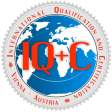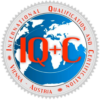Specifying Requirements for Distance Learning Services
ISO 29994:2017 is a standard that specifies requirements for distance learning services, providing a comprehensive framework to ensure quality and effectiveness in the delivery of education and training through remote methods. This standard is particularly useful for educational institutions, training providers, and other organizations that offer distance learning programs.
Key Aspects of ISO 29994:2017
- Objective:
- To provide a framework that ensures distance learning services meet the needs and expectations of learners and other stakeholders, and maintain high standards of quality and effectiveness.
- Scope:
- Applicable to any organization providing distance learning services, including but not limited to universities, colleges, training providers, and corporate training programs.
- Benefits:
- Enhances the quality and reliability of distance learning services.
- Improves learner satisfaction and engagement.
- Ensures consistency and standardization in the delivery of distance education.
- Facilitates continuous improvement and accountability.
Requirements and Implementation
1. Needs Analysis and Program Design:
- Learner Needs Assessment: Conduct thorough assessments to understand the specific needs, goals, and learning preferences of target learners.
- Program Design: Develop a structured curriculum that aligns with the identified learning objectives and outcomes. Ensure the program is adaptable to the online format.
2. Technology and Infrastructure:
- Learning Management System (LMS): Select and implement a robust LMS that supports various forms of content delivery, learner interaction, assessment, and progress tracking.
- Accessibility: Ensure that the chosen technology and content are accessible to all learners, including those with disabilities, following guidelines such as WCAG.
- Technical Support: Provide continuous technical support for both learners and instructors to address any issues promptly.
3. Delivery of Learning Services:
- Instructional Methods: Utilize a blend of synchronous (live sessions) and asynchronous (recorded lectures, self-paced modules) learning methods to cater to diverse learning styles.
- Interactive Elements: Integrate interactive elements like quizzes, discussion forums, group projects, and live Q&A sessions to enhance learner engagement.
- Feedback Mechanisms: Implement regular feedback mechanisms to monitor learner progress and satisfaction, allowing for timely adjustments.
4. Assessment and Evaluation:
- Formative Assessments: Incorporate regular formative assessments to provide continuous feedback and support to learners.
- Summative Assessments: Conduct summative assessments to evaluate learners' overall performance and achievement of learning outcomes.
- Integrity of Assessments: Use tools like plagiarism detection software to ensure the integrity of assessments and academic honesty.
5. Learner Support:
- Academic Support: Offer tutoring, mentoring, and additional learning resources to support learners' academic progress.
- Administrative Support: Provide clear information and assistance on enrollment, course navigation, and other administrative processes.
- Counseling Services: Make counseling services available to support learners' mental and emotional well-being.
6. Quality Assurance and Continuous Improvement:
- Monitoring and Evaluation: Regularly monitor and evaluate the effectiveness of distance learning programs using various metrics and feedback from stakeholders.
- Continuous Improvement: Utilize feedback and evaluation results to make continuous improvements to the program.
- Professional Development: Offer ongoing professional development opportunities for instructors to enhance their skills in delivering distance education.
7. Data Security and Privacy:
- Data Protection: Implement robust measures to protect learners' personal data and ensure compliance with data protection regulations (e.g., GDPR).
- Privacy Policies: Clearly communicate privacy policies to learners and ensure transparency in data handling practices.
Certification Process
- Pre-assessment:
- Conduct an optional pre-assessment to identify potential areas of non-compliance and areas for improvement before the formal certification audit.
- Stage 1 Audit (Documentation Review):
- The certification body reviews the organization's documentation to ensure it meets the requirements of ISO 29994:2017.
- Stage 2 Audit (On-site or Virtual Audit):
- The certification body conducts an on-site or virtual audit to verify the effective implementation of the standard in the organization's distance learning services.
- Certification Decision:
- Based on the audit findings, the certification body decides whether to grant ISO 29994:2017 certification.
- Surveillance Audits:
- Periodic surveillance audits are conducted to ensure ongoing compliance with ISO 29994:2017.
- Recertification:
- The certification is typically valid for three years, after which a recertification audit is required.
Specifying Requirements for Distance Learning Services
ISO 29994:2017 is a standard that specifies requirements for distance learning services, providing a comprehensive framework to ensure quality and effectiveness in the delivery of education and training through remote methods. This standard is particularly useful for educational institutions, training providers, and other organizations that offer distance learning programs.
Key Aspects of ISO 29994:2017
- Objective:
- To provide a framework that ensures distance learning services meet the needs and expectations of learners and other stakeholders, and maintain high standards of quality and effectiveness.
- Scope:
- Applicable to any organization providing distance learning services, including but not limited to universities, colleges, training providers, and corporate training programs.
- Benefits:
- Enhances the quality and reliability of distance learning services.
- Improves learner satisfaction and engagement.
- Ensures consistency and standardization in the delivery of distance education.
- Facilitates continuous improvement and accountability.
Requirements and Implementation
1. Needs Analysis and Program Design:
- Learner Needs Assessment: Conduct thorough assessments to understand the specific needs, goals, and learning preferences of target learners.
- Program Design: Develop a structured curriculum that aligns with the identified learning objectives and outcomes. Ensure the program is adaptable to the online format.
2. Technology and Infrastructure:
- Learning Management System (LMS): Select and implement a robust LMS that supports various forms of content delivery, learner interaction, assessment, and progress tracking.
- Accessibility: Ensure that the chosen technology and content are accessible to all learners, including those with disabilities, following guidelines such as WCAG.
- Technical Support: Provide continuous technical support for both learners and instructors to address any issues promptly.
3. Delivery of Learning Services:
- Instructional Methods: Utilize a blend of synchronous (live sessions) and asynchronous (recorded lectures, self-paced modules) learning methods to cater to diverse learning styles.
- Interactive Elements: Integrate interactive elements like quizzes, discussion forums, group projects, and live Q&A sessions to enhance learner engagement.
- Feedback Mechanisms: Implement regular feedback mechanisms to monitor learner progress and satisfaction, allowing for timely adjustments.
4. Assessment and Evaluation:
- Formative Assessments: Incorporate regular formative assessments to provide continuous feedback and support to learners.
- Summative Assessments: Conduct summative assessments to evaluate learners' overall performance and achievement of learning outcomes.
- Integrity of Assessments: Use tools like plagiarism detection software to ensure the integrity of assessments and academic honesty.
5. Learner Support:
- Academic Support: Offer tutoring, mentoring, and additional learning resources to support learners' academic progress.
- Administrative Support: Provide clear information and assistance on enrollment, course navigation, and other administrative processes.
- Counseling Services: Make counseling services available to support learners' mental and emotional well-being.
6. Quality Assurance and Continuous Improvement:
- Monitoring and Evaluation: Regularly monitor and evaluate the effectiveness of distance learning programs using various metrics and feedback from stakeholders.
- Continuous Improvement: Utilize feedback and evaluation results to make continuous improvements to the program.
- Professional Development: Offer ongoing professional development opportunities for instructors to enhance their skills in delivering distance education.
7. Data Security and Privacy:
- Data Protection: Implement robust measures to protect learners' personal data and ensure compliance with data protection regulations (e.g., GDPR).
- Privacy Policies: Clearly communicate privacy policies to learners and ensure transparency in data handling practices.
Certification Process
- Pre-assessment:
- Conduct an optional pre-assessment to identify potential areas of non-compliance and areas for improvement before the formal certification audit.
- Stage 1 Audit (Documentation Review):
- The certification body reviews the organization's documentation to ensure it meets the requirements of ISO 29994:2017.
- Stage 2 Audit (On-site or Virtual Audit):
- The certification body conducts an on-site or virtual audit to verify the effective implementation of the standard in the organization's distance learning services.
- Certification Decision:
- Based on the audit findings, the certification body decides whether to grant ISO 29994:2017 certification.
- Surveillance Audits:
- Periodic surveillance audits are conducted to ensure ongoing compliance with ISO 29994:2017.
- Recertification:
- The certification is typically valid for three years, after which a recertification audit is required.

Specifying Requirements for Distance Learning Services
ISO 29994:2017 provides a detailed framework for ensuring the quality and effectiveness of distance learning services. By adhering to this standard, educational organizations can enhance their service delivery, meet the diverse needs of learners, and demonstrate their commitment to continuous improvement and high standards in education. This ultimately benefits learners by providing a more structured, supportive, and engaging learning experience.

Specifying Requirements for Distance Learning Services
ISO 29994:2017 provides a detailed framework for ensuring the quality and effectiveness of distance learning services. By adhering to this standard, educational organizations can enhance their service delivery, meet the diverse needs of learners, and demonstrate their commitment to continuous improvement and high standards in education. This ultimately benefits learners by providing a more structured, supportive, and engaging learning experience.
Need help? Book a meeting at a time to suit your schedule
If you need assistance, we're here to help! You can book a call with us at a time that suits your schedule. Simply let us know your availability. Whether you have questions, need guidance, or require assistance with our services, we're committed to ensuring you receive the help you need. Contact us today to schedule your call!
Certification Milestones
-
Free strategic meeting
-
Your tailored proposal
-
Confirmation
-
Stage 1 Audit date
-
Stage 2 Audit date (Certification)
-
Obtain your Certificate
Need help? Book a meeting at a time to suit your schedule
If you need assistance, we're here to help! You can book a call with us at a time that suits your schedule. Simply let us know your availability. Whether you have questions, need guidance, or require assistance with our services, we're committed to ensuring you receive the help you need. Contact us today to schedule your call!
Certification Milestones
-
Free strategic meeting
-
Your tailored proposal
-
Confirmation
-
Stage 1 Audit date
-
Stage 2 Audit date (Certification)
-
Obtain your Certificate


